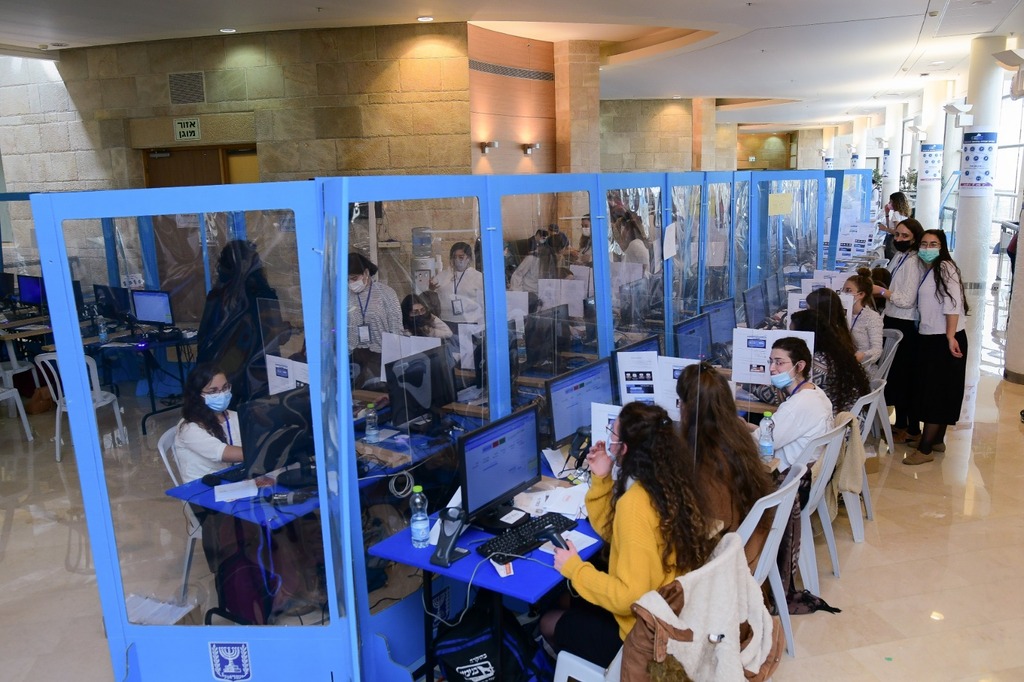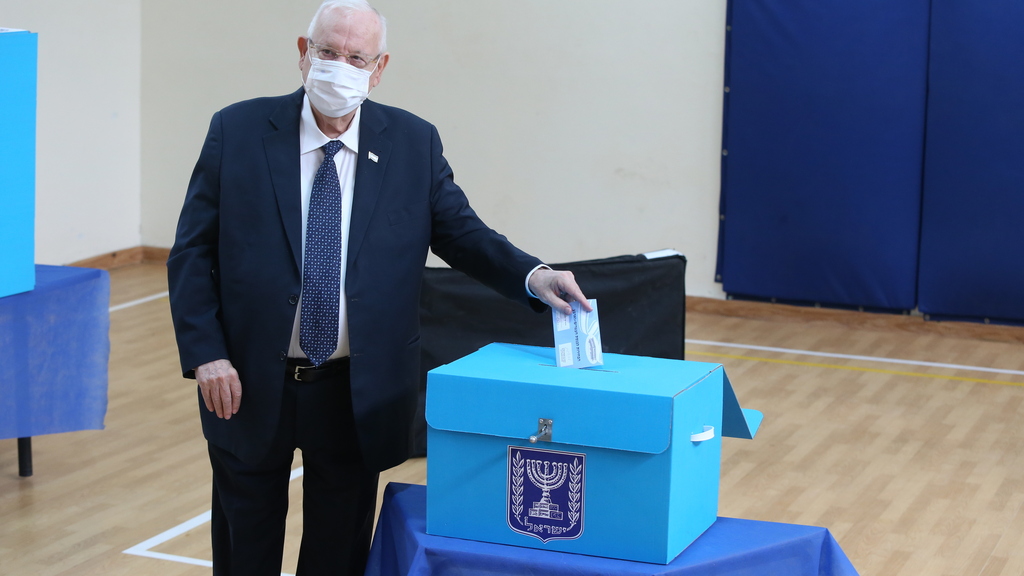Getting your Trinity Audio player ready...
With more than 95.6% of the vote counted in Tuesday's elections in Israel, there was still no clear winner Thursday morning, as Prime Minister Benjamin Netanyahu and Opposition Leader Yair Lapid both lacked the handful of Knesset seats needed to form a right-wing or centrist coalition government respectively.
The head of small Islamist Ra'am party, Mansour Abbas, has emerged as an unlikely kingmaker as both political blocs would need him to form a government. Some members of the right-wing Likud have expressed opposition to relying on an Arab party to remain in power.
The current deadlock is leaving the country facing the prospect of unprecedented fifth consecutive election since April 2019.
4 View gallery


Yair Lapid, Mansour Abbas, Naftali Bennett and Benjamin Netanyahu
(Photo: Reuters, Ynet)
According to results released on Thursday morning, Netanyahu's Likud has 30 seats, Lapid's Yesh Atid 17, Shas 9, Blue & White 8, United Torah Judaism 7, Labor 7, Yamina 7, Yisrael Beiteinu 7, Religious Zionism 6, The Joint List 6, New Hope 6, Meretz 6 and Ra'am with 4.
Ra'am on Wednesday looked as though it would get at least five Knesset seats, but it has lost one seat once the so-called double envelope ballots cast by soldiers, hospital patients, prisoners, people in quarantine and officials serving abroad started to trickle in.
Based on the data showing the distribution of votes around the country, Likud has the overall lead in local authorities, with a large concentration of votes in southern and northern cities, including in Haifa that last election cycle voted overwhelmingly for Blue & White.
Yesh Atid appears to be leading in municipalities in the center of the country, including in Tel Aviv, Giv'atayim, Herzliya and Hod HaSharon.
In religious parties' strongholds such as Jerusalem, Beitar Illit and Beit Shemesh, the vote was split primarily among United Torah Judaism, Shas and Religious Zionism.
The latest tally does not include the double envelopes, which include the votes of coronavirus patients, soldiers, Israelis abroad and care home residents. Central Election Committee began counting these vote late Wednesday, with the results expected sometime Friday.
To date, there is still no exact number of double envelopes, but there estimated to be at least 450,000 of such votes, equivalent to 12 Knesset seats.
In the meantime, President Reuven Rivlin has decided to postpone the round of consultations to hear MKs’ nominees to form the next government until after the Jewish holiday of Passover that begins Saturday and ends on April 5.
Although the new date is close to the opening of the evidentiary phase in Netanyahu's ongoing corruption trial, sources said the president decided to push back the date to increase the odds of having a candidate who would be able to form a government.




